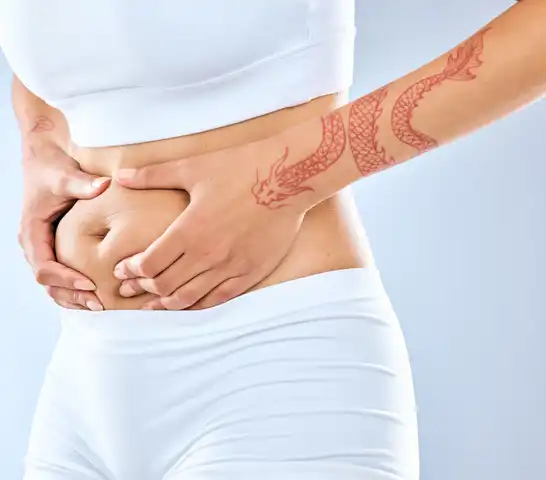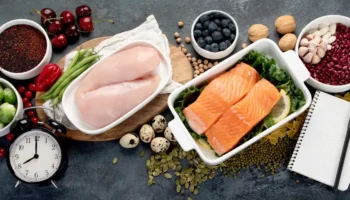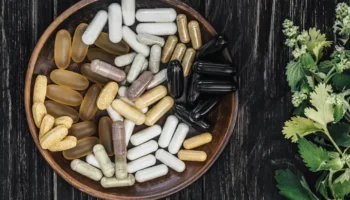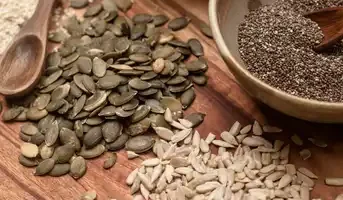If you’ve hit your 40s and noticed your tummy feels a lot puffier than it used to, you’re definitely not alone! Many women experience noticeable bloating, unexpected weight gain, and that uncomfortable feeling of swelling in the stomach area during pre-menopause. It can be tough when your body seems to change overnight, and that once-flat belly is now rounder, puffier, and way harder to shrink. But what’s causing this bloating, and more importantly, how can you get some relief?
Why Does Bloated Tummy Happen During Pre-Menopause?
Before you start blaming yourself for the changes, it’s important to know that what you’re experiencing is actually pretty common and happens for a few specific reasons. It’s not just about weight gain—it’s also about hormones, digestion, and how your body is holding onto water. So, let’s dive into the science behind it:

1. Hormonal Changes & Estrogen Dominance
One of the main reasons for a bloated stomach is the shifting hormone levels as you enter pre-menopause. As estrogen starts to fluctuate, your body begins storing more fat, especially around the belly area. On top of that, the balance between estrogen and progesterone gets thrown off, leading to bloating and water retention. Studies (Source: Endocrine Society, 2018) show that estrogen dominance, which happens when estrogen is higher than progesterone, causes your body to hold onto fluids and fat in the stomach, making your tummy feel bigger and puffier.
2. Slower Digestion & Gut Imbalance
Your metabolism naturally slows down as you approach menopause, which means your digestion may not work as quickly or efficiently. This slowdown, combined with changes in your gut bacteria, can cause gas buildup and bloating. Research from Harvard Medical School (2021) has shown that the changes in gut microbiota during menopause can lead to uncomfortable digestion issues. Plus, with reduced stomach acid, food might not break down properly, causing fermentation in the gut, which leads to gas and bloating.
3. Water Retention & Abdominal Swelling
Stress is another big player when it comes to bloating. When you’re stressed, your body releases more cortisol (the stress hormone), and this can cause your body to hold onto extra water. It’s one of the reasons why you might feel more bloated or notice swelling in your tummy. A study published in the Journal of Clinical Endocrinology suggests that high cortisol levels, common during pre-menopause, contribute to both abdominal fat storage and bloating. So, it’s not just what you’re eating, but how stressed you are, that can make things worse.
4. Food Sensitivities & Gas Buildup
As you move through pre-menopause, you might find that your body has developed new food sensitivities. Foods like dairy, gluten, or sugar that never bothered you before may now lead to bloating and discomfort. Research from the American Journal of Gastroenterology (2022) suggests that hormonal shifts can make your body more sensitive to certain foods, leading to more bloating. High-FODMAP foods (like onions, beans, and dairy) can cause excess gas and bloating, especially in women going through this stage.

How to Reduce That Bloated Tummy During Pre-Menopause
Now that we know why bloating happens, let’s talk about what you can do to feel better. These are simple, doable solutions that you can start today!
1. Try Intermittent Fasting (IF) for Gut & Hormone Health
Intermittent fasting (IF) can actually work wonders for bloating and overall hormone balance. Studies, like the one from Cell Metabolism (2021), show that fasting helps regulate insulin and hormones, which can reduce bloating. Plus, it gives your gut a chance to rest and recover, leading to less fermentation and gas. You don’t have to do anything extreme—just try the 16:8 method, where you fast for 16 hours and eat within an 8-hour window. It can help balance hormones, reduce inflammation, and boost fat metabolism.
2. Avoid Bloating Foods
Certain foods can trigger bloating, so it’s important to know which ones to avoid:
- Processed carbs (like white bread and pasta)
- Dairy (if you’re lactose-sensitive)
- Carbonated drinks (which trap gas in your stomach)
- Sugar and artificial sweeteners (they can cause bloating and inflammation)
Instead, opt for anti-bloating foods like cucumber, ginger, fennel, and leafy greens. These foods help naturally flush out the swelling and leave you feeling lighter.

3. Hydrate to Reduce Water Retention
Drinking more water might sound counterintuitive, but staying hydrated actually helps reduce water retention. When you’re dehydrated, your body holds onto extra fluid, making the bloating even worse. Aim for at least 2 liters of water a day, and cut back on salty foods and alcohol, which can contribute to bloating and inflammation.
4. Balance Your Hormones Naturally
Supporting your hormones with the right foods can help reduce bloating. Some hormone-balancing foods include:
- Flaxseeds: These help regulate estrogen levels.
- Avocados: Full of healthy fats that support hormone production.
- Leafy greens: Help detox excess estrogen.
- Herbal teas: Spearmint and chamomile can reduce bloating and lower cortisol levels.
- Magnesium-rich foods: Foods like pumpkin seeds, almonds, and dark chocolate help reduce water retention.
5. Get Moving (In a Gentle Way!)
You don’t need to do hours of cardio or endless crunches to relieve bloating. Simply getting active can help:
- Walking daily helps reduce stress and aids digestion.
- Yoga: Poses like twists and downward dog can help release trapped gas.
- Strength training: Boost your metabolism and burn belly fat.
- Pelvic floor exercises: These can improve core strength and digestion.
6. Support Your Gut Health
Since gut health is closely tied to bloating, make sure you’re doing what you can to support your digestive system. Here’s how:
- Probiotics: These help restore the healthy bacteria in your gut, which can improve digestion.
- Fermented foods: Incorporating yogurt, kimchi, and sauerkraut into your diet can promote digestion.
- Stress management: Find ways to manage stress, as it can worsen bloating.
- Eat mindfully: Slow down when eating and chew your food thoroughly to help with digestion.
7. Consider Supplements for Extra Help
If lifestyle changes alone aren’t enough, some supplements may provide additional relief:
- Digestive enzymes: These help break down food and reduce gas.
- Magnesium: Reduces water retention and helps with stress-induced bloating.
- Omega-3 fatty acids: Support both hormone balance and gut health.
- Apple cider vinegar: Known to help with digestion and reduce bloating.
Final Thoughts
Yes, your body is changing, but that doesn’t mean you have to be stuck with a bloated stomach and discomfort. With a little patience, some simple lifestyle changes, and a focus on gut health and hormonal balance, you can reduce bloating and start feeling like yourself again.
Pre-menopause is a transition, not a sentence. So, embrace the changes, listen to your body, and experiment with the tips that work best for you. With the right support, you can reduce bloating, feel more energized, and enjoy a greater sense of confidence as you navigate this stage of life. You’ve got this!







